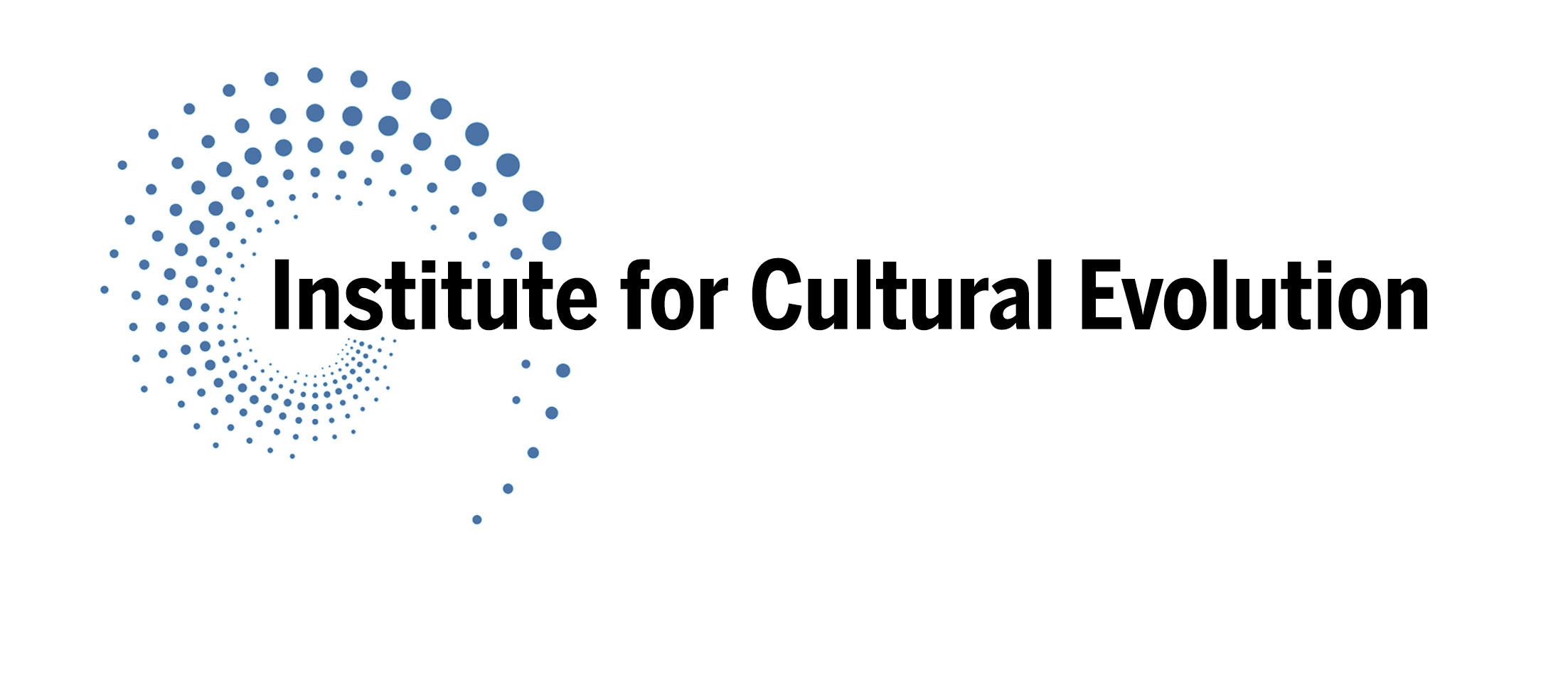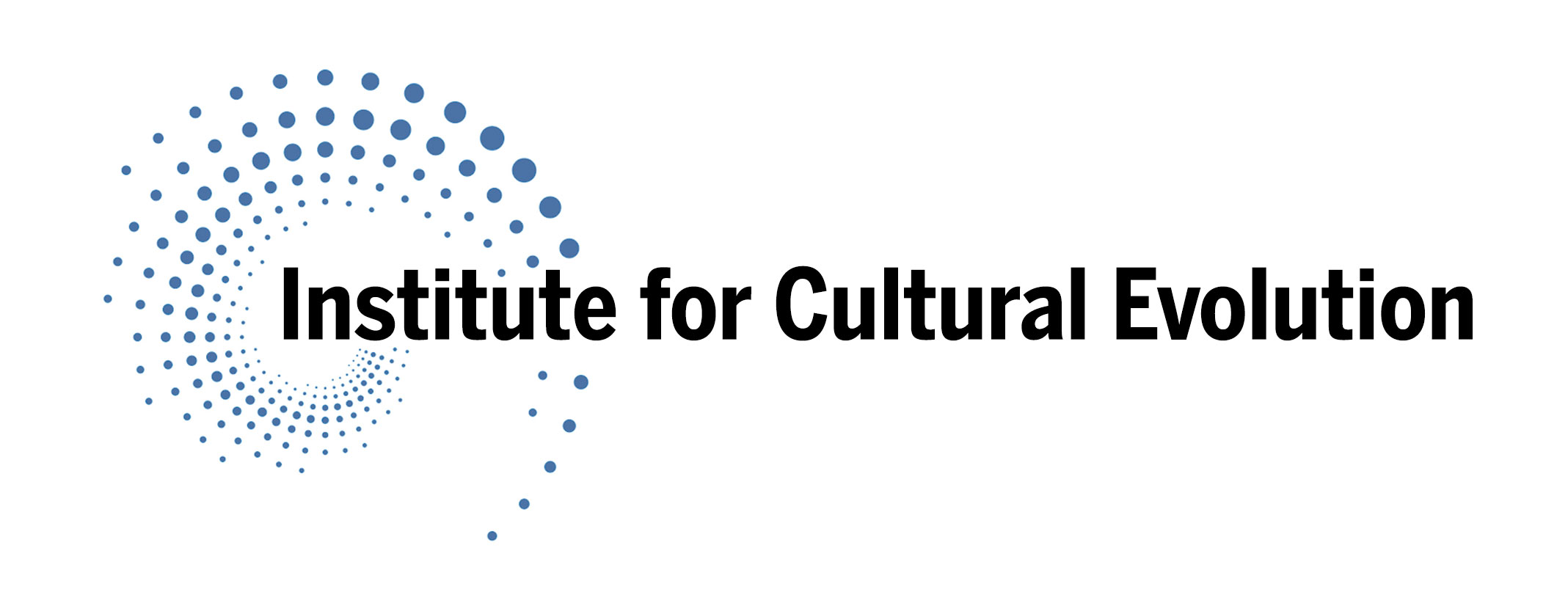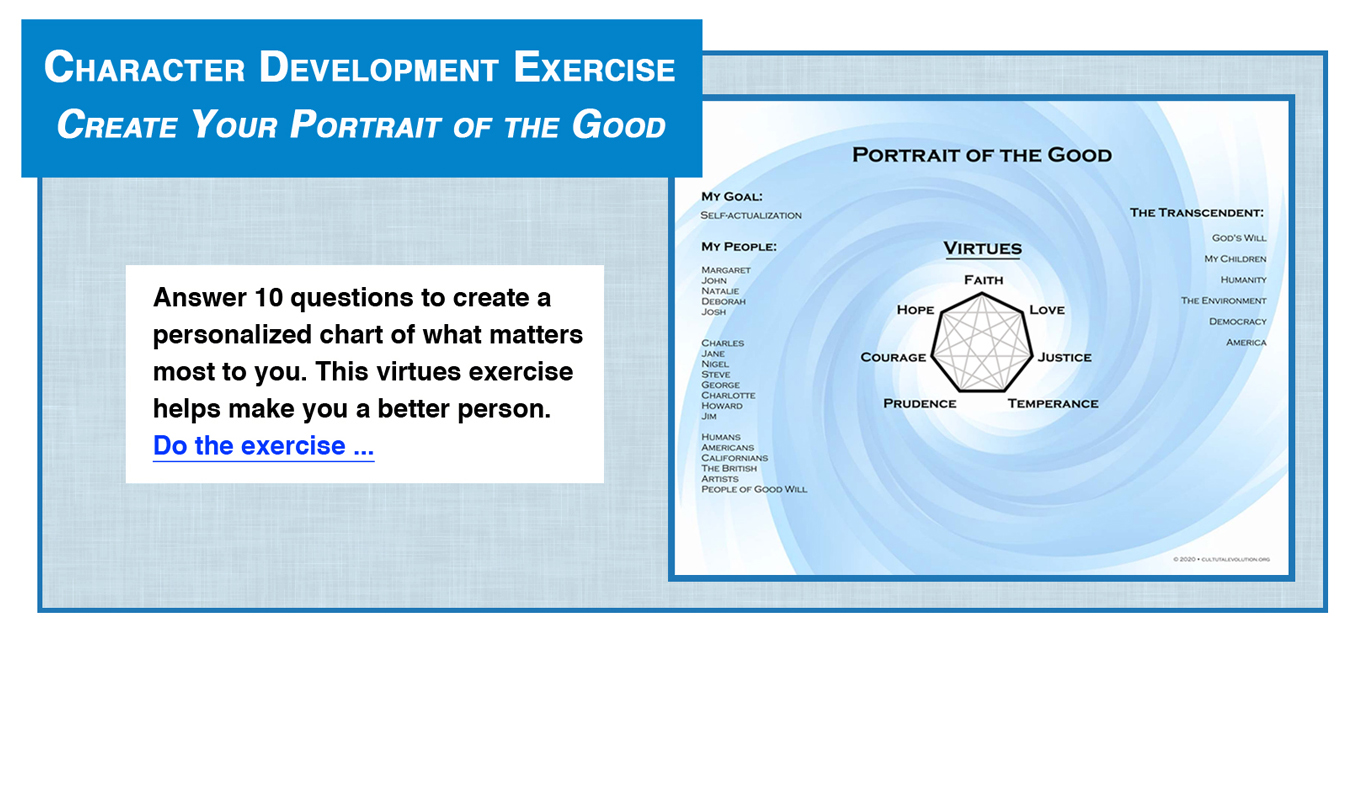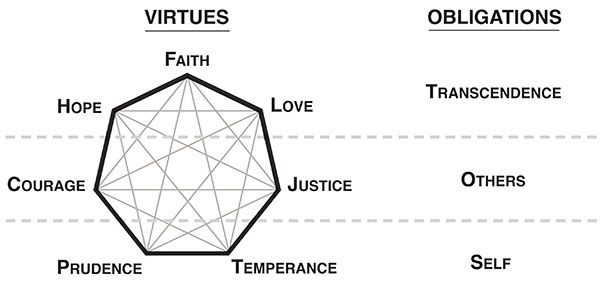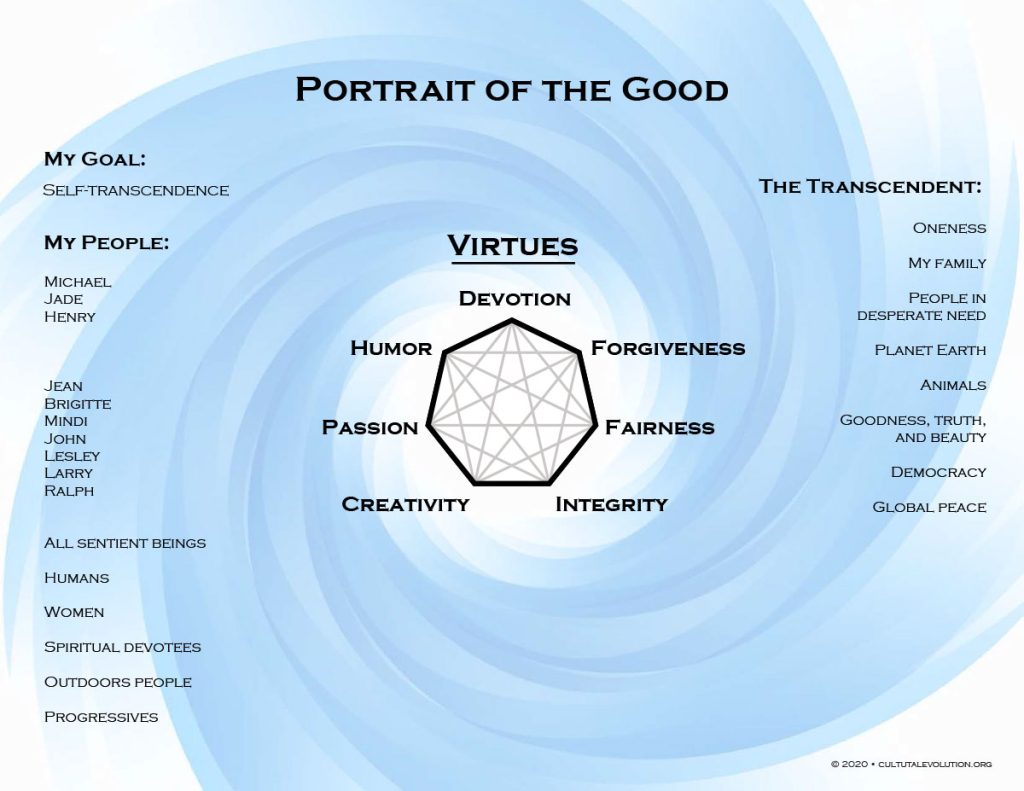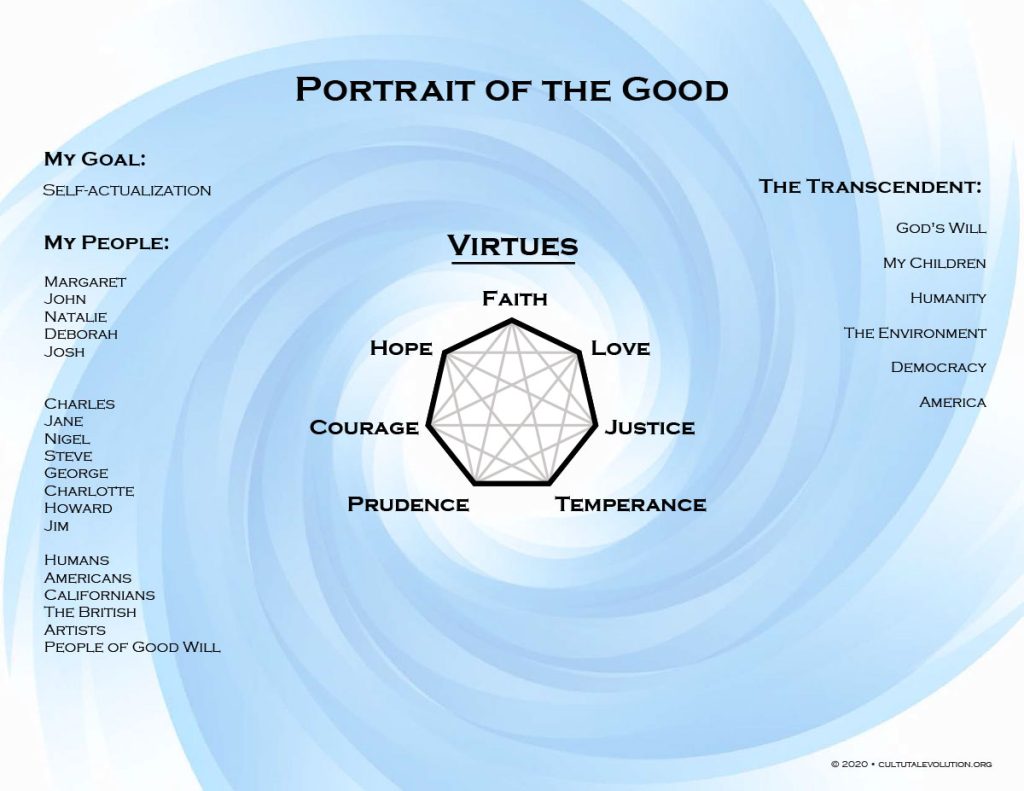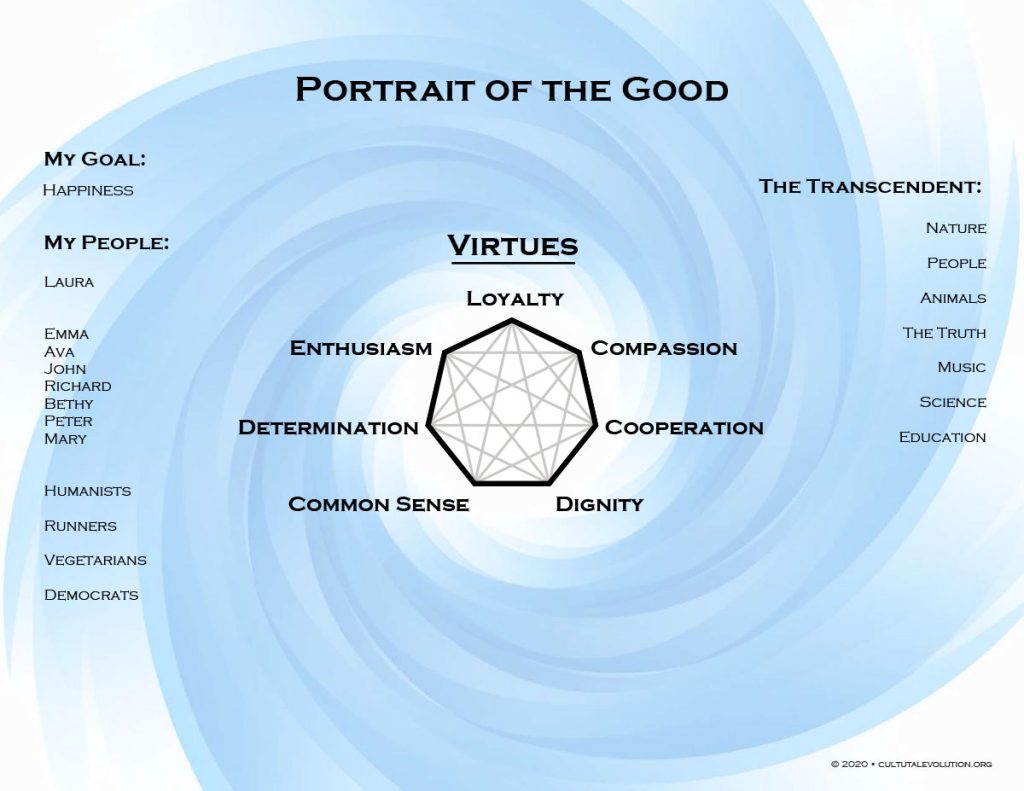ICE Press Release, November 18, 2019:
NEW ONLINE EXERCISE FOSTERS THE PERSONAL PRACTICE OF VIRTUES
Think tank Promotes Character Development and Civic Virtue by Inviting People to Create a Personalized “Portrait of the Good” —a Practice Tool Delivered By Email
BOULDER, COLORADO, The Institute for Cultural Evolution think tank is working to overcome hyperpolarization by encouraging Americans to be more virtuous. This nonprofit’s website now features a 10 minute exercise that helps people discern and practice their highest ideals. By answering 10 questions, users create a personalized chart of the people and things that matter most to them. Upon completing the exercise, the user’s “portrait of the good” chart is then sent to their email address.
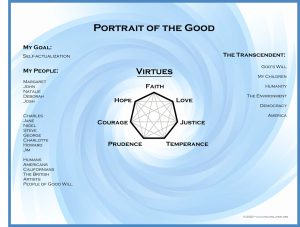
The point of the exercise is to get people to reflect on their ideals and what they really care about. This process helps clarify the basic moral obligations that people owe to themselves, to others, and to that which they recognize as transcendent. Helping people distill their ideals by creating a personalized printable chart fosters character development and promotes the practice of virtues. Consciously practicing virtues is a proven way to become happier and more effective. An example of a completed Portrait of the Good chart is shown on the right.
The Institute for Cultural Evolution’s mission is help America grow into a better version of itself. Headed by authors Steve McIntosh and Carter Phipps, the Institute’s Board of Directors includes Whole Foods CEO John Mackey, Daily Evolver podcast host Jeff Salzman, and serial tech entrepreneur John Street. The Institute works to synthesize and harmonize the values and positive goals of both the Left and Right. Its strategies are based on fresh insights into how worldviews form and how human culture evolves.

